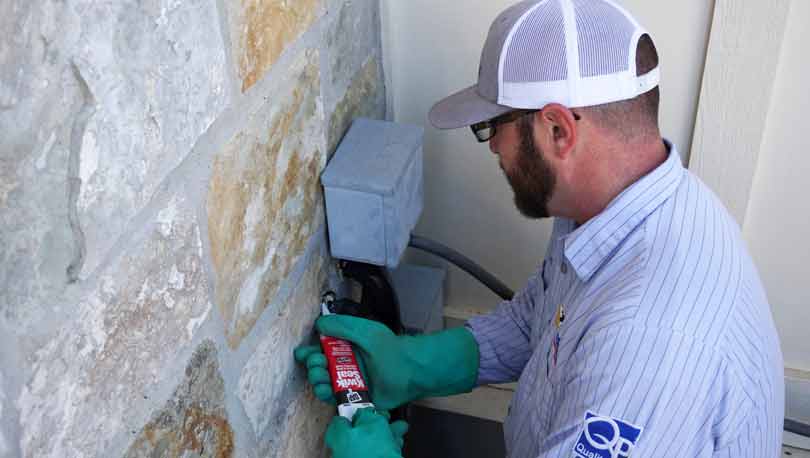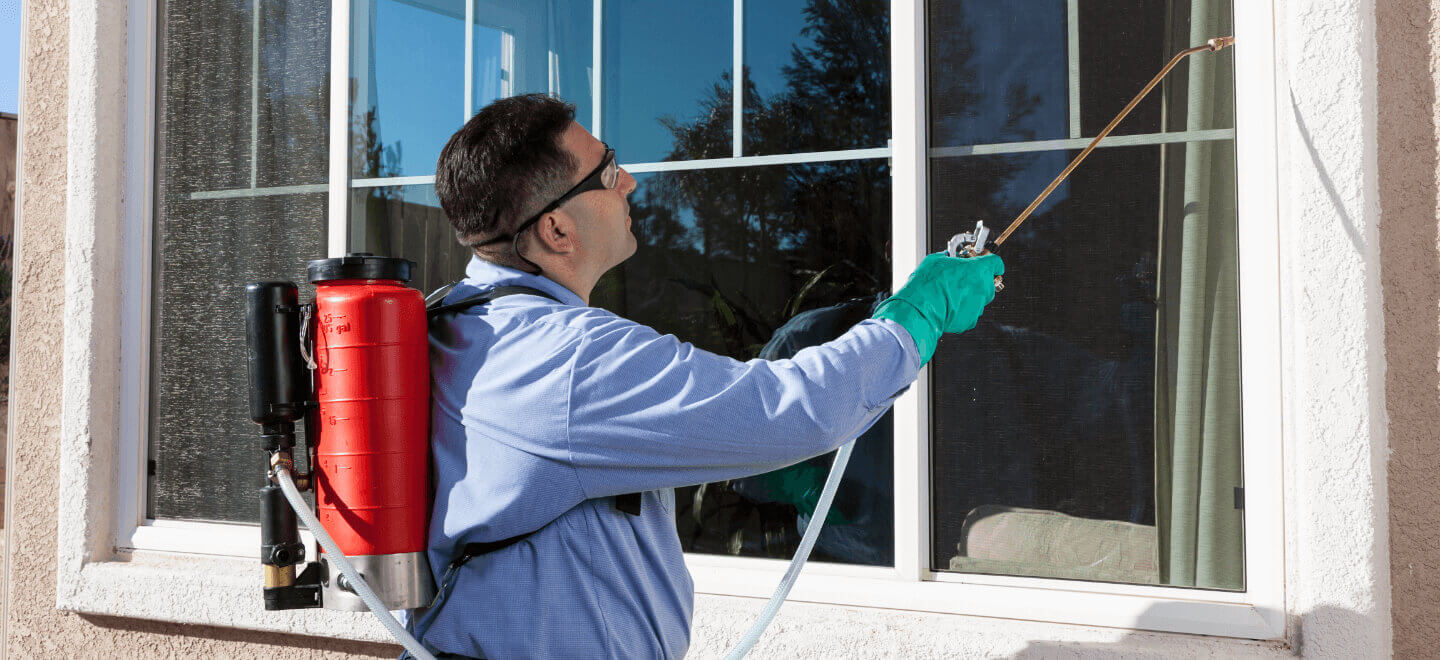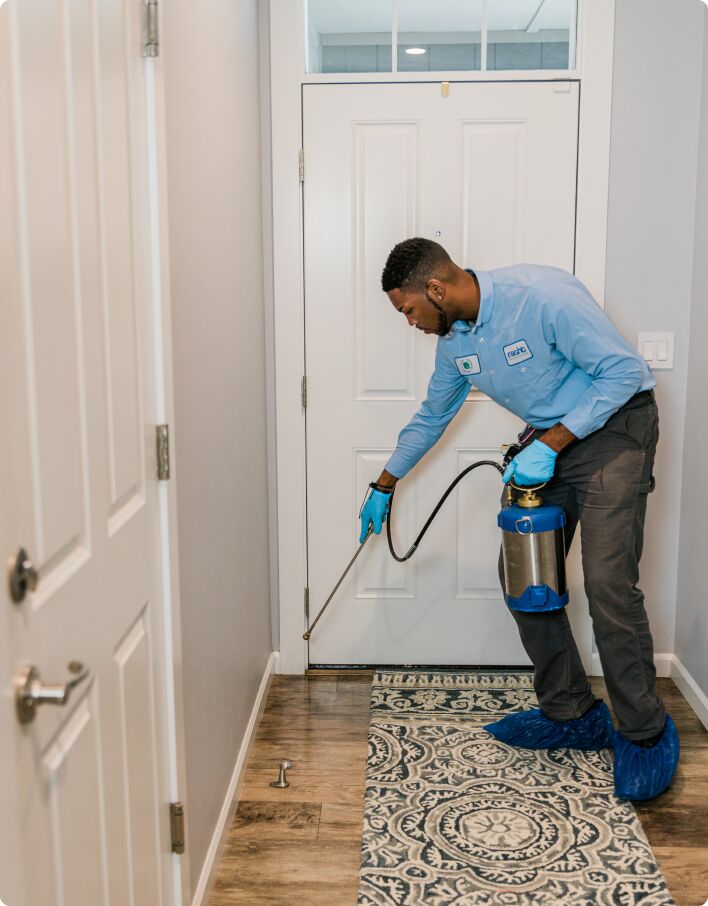Bid Farewell to Unwanted Visitors: Orem Pest Control at Your Service
Bid Farewell to Unwanted Visitors: Orem Pest Control at Your Service
Blog Article
Discovering the Different Kinds Of Pest Control Techniques and Their Applications
Insect control is a critical facet of keeping a healthy and balanced and risk-free environment, whether it be in property, industrial, or agricultural settings. From chemical methods that target specific insects to biological methods that harness natural predators, the realm of insect control is huge and diverse.
Chemical Bug Control Methods
Chemical pest control methods are commonly used in farming and parasite management to properly eliminate or manage pest problems. These methods entail the usage of chemical compounds, such as chemicals, insecticides, and herbicides, to eliminate or decrease parasite populations that pose a threat to plants, animals, or human wellness.
While chemical parasite control methods can be extremely effective in managing pest populaces, they likewise increase concerns concerning prospective environmental and health threats. Incorrect use or overuse of chemical pesticides can lead to air pollution of dirt, water, and air, damaging non-target microorganisms and creating long-term eco-friendly damage. Additionally, duplicated exposure to chemical deposits might position health dangers to farmworkers, consumers, and wildlife. It is important to adhere to safety standards, make use of incorporated pest management approaches, and take into consideration alternative approaches to decrease the unfavorable influences of chemical parasite control strategies.
Organic Bug Control Approaches
 Organic bug control techniques use living organisms to take care of and reduce bug populaces in a sustainable and ecologically friendly manner. This method involves presenting all-natural killers, parasites, or pathogens to control parasites without the need for artificial chemicals. One usual approach is the release of ladybugs to combat aphids in yards, as ladybugs are all-natural predators of these damaging pests. An additional example is using Bacillus thuringiensis (Bt), a microorganism that generates toxic substances lethal to particular insect larvae, to manage mosquitoes and caterpillars.
Organic bug control techniques use living organisms to take care of and reduce bug populaces in a sustainable and ecologically friendly manner. This method involves presenting all-natural killers, parasites, or pathogens to control parasites without the need for artificial chemicals. One usual approach is the release of ladybugs to combat aphids in yards, as ladybugs are all-natural predators of these damaging pests. An additional example is using Bacillus thuringiensis (Bt), a microorganism that generates toxic substances lethal to particular insect larvae, to manage mosquitoes and caterpillars. 
Organic parasite control methods provide numerous benefits over chemical methods. They are normally more secure for the environment, as they do not leave dangerous deposits or contribute to contamination. In addition, these methods are commonly more targeted, influencing only the pest types without hurting valuable pests or other organisms. Organic control can be a lasting remedy, as the introduced microorganisms can develop lasting populaces and give recurring parasite monitoring. On the whole, organic insect control approaches offer a all-natural and reliable option to conventional chemical treatments, promoting a balanced ecosystem and healthier settings.
Physical Bug Control Approaches
Utilizing physical methods to regulate pests includes the usage of mechanical or non-chemical ways to reduce and manage bug problems efficiently. One typical physical parasite control method is the setup of fences, displays, or webs to obstruct pests from going into details areas.
One more physical technique is the usage of catches, such as breeze catches for rats or scent catches for pests. These catches aim to capture pests without presenting any type of danger to human beings or the setting. In addition, physical control techniques can consist of methods like handpicking bugs off plants, utilizing vacuum cleaner tools to eliminate pests, or employing heat treatments to eradicate bed pests and various other parasites in ravaged locations.
Integrated Bug Administration Methods
Applying an alternative technique to pest administration, Integrated Pest Monitoring (IPM) approaches aim to incorporate various reliable methods to avoid and control pest infestations while minimizing ecological effect and making sure sustainable parasite control methods. IPM involves the integration of several control techniques such as biological control, social practices, mechanical control, and the mindful usage of chemicals.

Moreover, IPM emphasizes the value of surveillance and evaluating pest populaces to figure out the most ideal control strategies. By carrying out IPM approaches, pest control efforts end up being a lot more targeted and reliable, reducing the risks connected with extreme chemical usage and promoting long-lasting parasite monitoring solutions.
Natural and Organic Insect Control Options

One popular natural pest control technique is neem oil, originated from the seeds of the neem tree, which serves as a repellent and interferes with the growth and advancement of pests. Diatomaceous earth, a natural silica-based powder, is an additional efficient natural insect control alternative that functions by dehydrating pests upon call. By including natural and organic insect control alternatives into insect monitoring strategies, individuals can successfully regulate pests while lessening injury to the setting and promoting sustainable practices.
Final Thought
In final thought, various insect control methods such as chemical, organic, physical, incorporated parasite monitoring, and natural options are available for efficiently handling bug problems. Each approach has its very own benefits and applications relying on the kind of pest and the atmosphere. By recognizing the various kinds of parasite control methods and their applications, people can make informed choices on one of the most suitable method to regulate parasites and shield their property.
Chemical parasite control techniques are widely made use of in farming and parasite monitoring to properly remove or manage pest invasions - Orem Pest Control. Natural pest control approaches entail utilizing biological control agents, such as predators or bloodsuckers, to handle parasite populaces. By including all-natural and organic parasite control alternatives right into parasite management approaches, people can efficiently control parasites while decreasing damage to the environment and advertising sustainable practices
In verdict, different pest control strategies such as chemical, organic, physical, incorporated pest monitoring, and all-natural options are offered for effectively taking care of bug infestations. By recognizing the different kinds of insect control techniques and their applications, people can make informed decisions Continued on the most appropriate technique official statement to manage parasites and secure their residential property.
Report this page